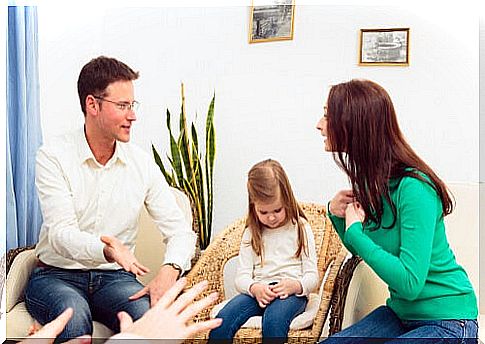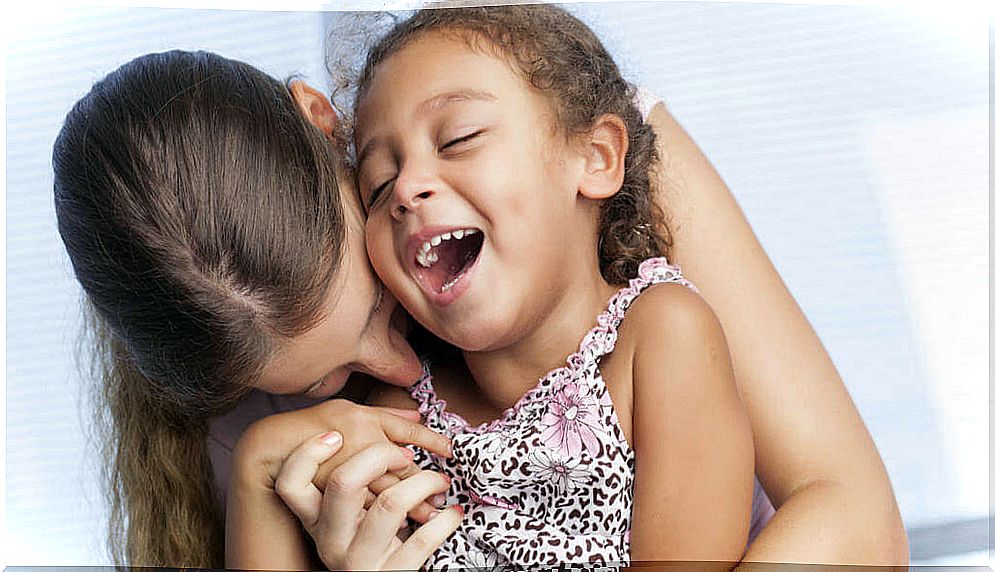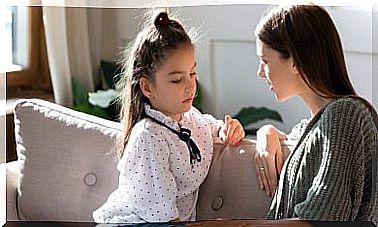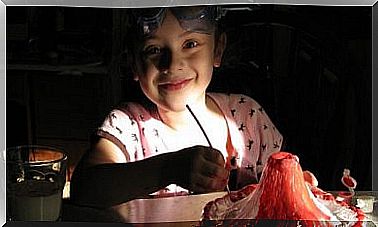How Do We Announce To The Children That We Are Going To Separate?

Living a separation is a very difficult experience for parents and children. Consequently, one of the most complicated moments is communicating to the little ones in the house that we are going to separate, since it generates a whole range of emotions: anger, sadness, pain, guilt and fear, among others.
Announcing it to your children is really difficult because, as a mother, you worry about their reactions, their feelings and their position in relation to both parents.
The key is to say things simply, as well as reassure them, listen to them, and help them get through events. If you apply some essential principles, announcing the separation to your children can be much more bearable.
How do we announce to the children that we are going to separate?
1.- Use simple words for the situation
The key message is that the parents have made the decision to divorce because they are not happy together, and that would affect their lives and that of the children.
Along these lines, you must make them understand that it is more pleasant to live together in the same house when there is love. But when there is no good relationship, that is no longer possible. Likewise, it must be confessed that, unlike love relationships, family ties last a lifetime.
2.- Choose the right moment to announce the decision
As long as the decision to divorce is still uncertain, there is no point in talking to the children, as they run the risk of being disturbed. On the contrary, they will not understand anything and might think that they are responsible for the situation. Keep in mind that they often develop a feeling of omnipotence and later guilt if the parents finally separate.

However, when the decision is made, it should not be communicated too late to the children. In this sense, it is important that they do not discover it by chance.
You have to be honest and take the child’s age into consideration when deciding to reveal it. Younger children need less detailed information; the older ones will want to know all kinds of details.
In any case, the really important thing is to say things as simply as possible and announce the situation when the whole family is present, regardless of the age of the children. Both young and old have the right to the truth; This shared knowledge of the situation will help them to better withstand events.
3.- Reassure your children
Children often feel responsible for the separation from their parents. Of course, you must inform them that the decision has nothing to do with them and that it is not, in any case, their fault.
Likewise, young children can easily believe that if their parents do not love each other, they will no longer love them. It is important to make them understand that they cannot divorce their children.
Therefore, it is essential to reassure them about the love you have for them and assure them that they will grow up surrounded as they have been today, with maternal and paternal support.
Children need to know that parents will continue to be responsible for their education and that they will continue to make decisions together. So explain that they will be able to see their mother and father as often as they need.
Finally, they need to agree on the organization of their future life before talking about the divorce to their children. As long as there are disagreements about child custody, it is best not to announce anything to them.

4.- Wait for the reactions
The decision to separate is not theirs and the child has every right to express their anger, sadness and pain. Reactions to separation are different depending on age. For example, children under the age of five usually do not understand the situation and feel that their parents are trying to hurt them.
They may also experience a regression in language, autonomy, eating disorders, sleep, etc. Over the years, they fear abandonment and may have problems with socialization and adaptation.
As for teenagers, they can develop more serious problems, and they are more likely to be able to harm themselves.
Therefore, you should be attentive to them when they tell you how they feel, without minimizing their feelings or avoiding the topic. On the contrary, offer to answer all their questions and doubts. The discussion space should be kept open to respect your emotions.
In conclusion, children’s refusal to separate is often linked to the parents’ reaction. If the parents think positively about the separation process, it will be less dramatic for the little ones and they will be able to trust more in their own adaptability.










